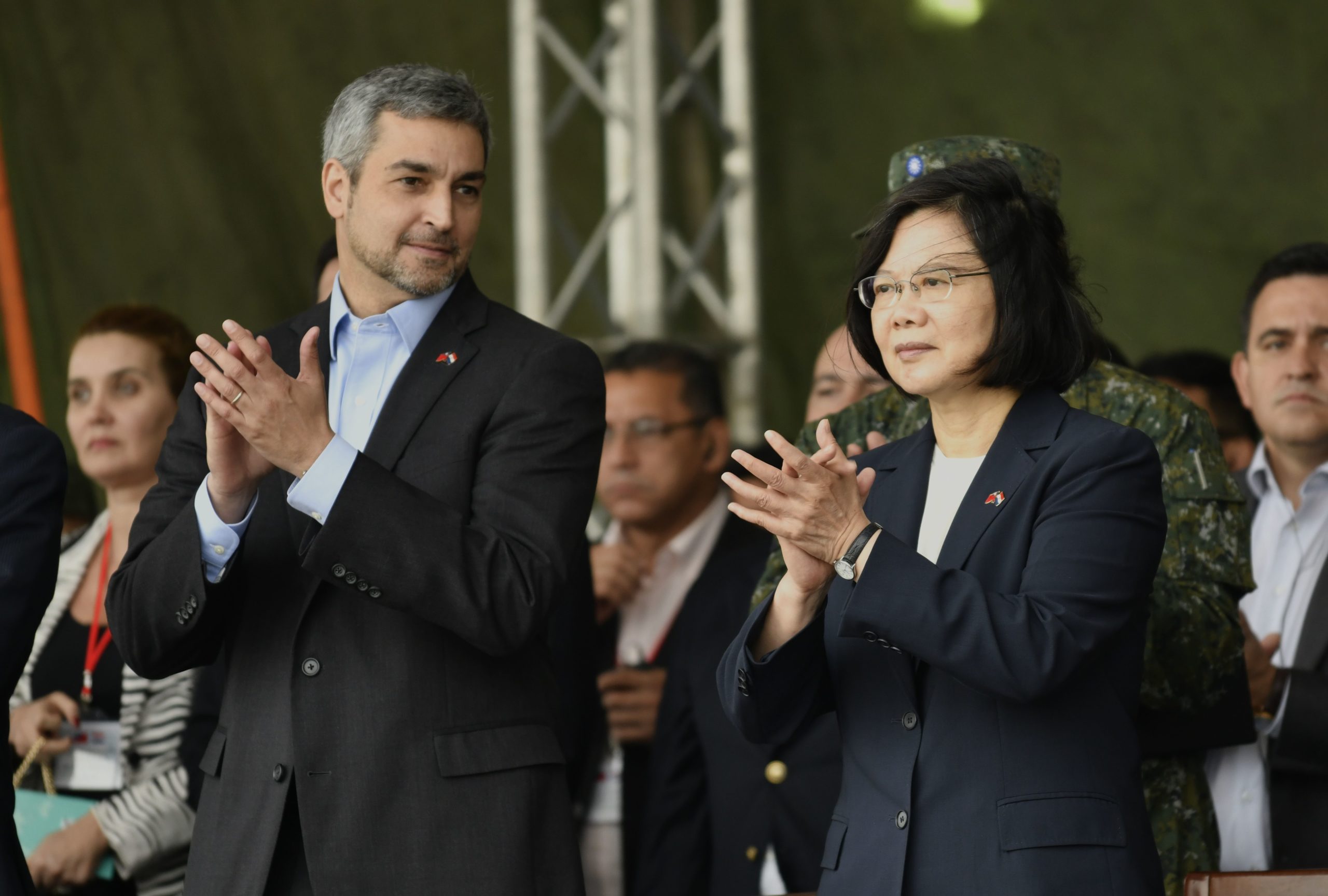Since 1957, Paraguay’s government has recognized Taiwan as the “true China.” Over the decades that relationship has weathered numerous storms: dictatorship, democratization, the Cold War and the rise of the mainland. But in mid-April, it seemed like the status quo might finally change. As the case of Paraguay suggests, the global pandemic is adding to existing pressures on Taiwan’s remaining relationships in Latin America.
In a virtual session on April 17, the Paraguayan Senate took a vote on whether to urge the president to change diplomatic recognition from Taipei to Beijing. The bill’s proponents argued that China could better aid Paraguay’s fight against COVID-19 by providing medical equipment and expertise. Taiwan responded by increasing aid to the country, including some 280,000 masks, and trumpeting its own response to the pandemic. In the end, the Paraguayan Senate voted against the proposal, 25 to 16. But the debate is not definitively over, and pressures on Taiwan’s support within Paraguay are increasing.
Paraguay was already an outlier – the only country in South America, and one of just 15 in the world, that recognizes Taiwan. It does so at a distinct cost: When a country grants diplomatic recognition to Taiwan, it cannot also maintain relations with China – the world’s second largest economy. While Paraguayan exports of beef and soy do end up in China, often through indirect trade, Paraguay does not receive the loans, credits and investments that China has showered on the rest of South America since the 2000s. Our statistical model suggests that the lost loans and investments could have reached 1% of Paraguay’s gross domestic product per year during the Chinese boom.
For many years, Paraguay’s diplomatic choice was uncontroversial, and it followed the United States’ lead. Plus, Taiwan and Paraguay were both led by virulent anti-communist regimes throughout the Cold War. By the turn of the century, though, the situation grew more complicated. Costa Rica changed its recognition from Taiwan to China in 2008; it was followed by Panama, the Dominican Republic, and El Salvador. In Costa Rica and elsewhere, relations with Taiwan were linked with corruption scandals, which drew unfavorable public attention and made them politically divisive. This created an opportunity for a rising China.
Meanwhile, China promised mega-projects and loans – as in El Salvador recently – while emerging as a trading partner too large to ignore. China’s unprecedented economic climb made its presence felt in South America – even in Paraguay. Paraguayan farmers, fearing exclusion from the Chinese market, have increased pro-China pressure. This threatens to further fragment Paraguay’s once-cohesive elite circles that favored ties with Taiwan.
Taiwan has increased aid in this competitive environment, but the island cannot counterbalance China’s massive economy. Taiwan can only buy so much Paraguayan beef and soy. It cannot top China in a bidding war of investment and loans – something it tried to do in the past. While Taiwanese diplomacy has been caught in occasional corruption scandals, it is clear the island cannot outspend – or out-bribe – the mainland anymore. Though the United States has taken a renewed interest in the issue under the Trump administration, for years U.S. pressure regarding Taiwan was muted. The explanation for continued Paraguayan support is more complex.
Paraguay and Taiwan engage in a reciprocal – but asymmetrical – exchange of international status, our research suggests. Paraguay’s formal recognition of Taiwan supports its claim for legal participation in the international community, including in international organizations like the World Health Organization (WHO). While Paraguay does not need this sort of support from Taiwan, it does gain another kind of esteem that is valued by its elites, in addition to concrete (if niche) material benefits.
Indeed, Taiwan has responded to China’s push by showering attention on Paraguay. It cultivates friendly ties with members of the government, diplomatic staff, cultural figures and civil society. Invitations to visit Taiwan are common. Taiwan routinely praises Paraguay and its friendship. Taiwan makes Paraguay – often overshadowed by its larger neighbors – a big fish in a small pond. Paraguay expresses sympathy for Taiwan’s plight because its own national identity is linked to being bullied by big neighbors – whether in a destructive war 150 years ago or in the ongoing negotiations over the massive Itaipú dam. Many in Paraguay chafe at the brusque choice and prefer being one of Taiwan’s few, but cherished, friends, instead of being lost among the many states that recognize China.
However, the strains on the unusual friendship illustrate why Taiwan is losing allies in Latin America and elsewhere. Chinese incentives fragment old pro-Taiwan coalitions and make the issue more salient. The case of Paraguay also shows how Taiwan may respond, not by trying to outbid China, but by offering special recognition to those countries willing to support it. Given China’s heft, future diplomatic support increasingly may fall short of diplomatic recognition, by backing Taiwanese observer status, for example. In the meantime, Taiwan’s friends in Paraguay will face increasing pressure from those who ask how the country can justify its nonrecognition of the world’s most populous country – leaving Chinese money on the table.
—
Tom Long is an associate professor at the University of Warwick, United Kingdom. Francisco Urdinez is an assistant professor at the Pontificia Universidad Católica, Chile. Their article “Status at the Margins: Why Paraguay Recognizes Taiwan and Shuns China” was published online in April by Foreign Policy Analysis.







